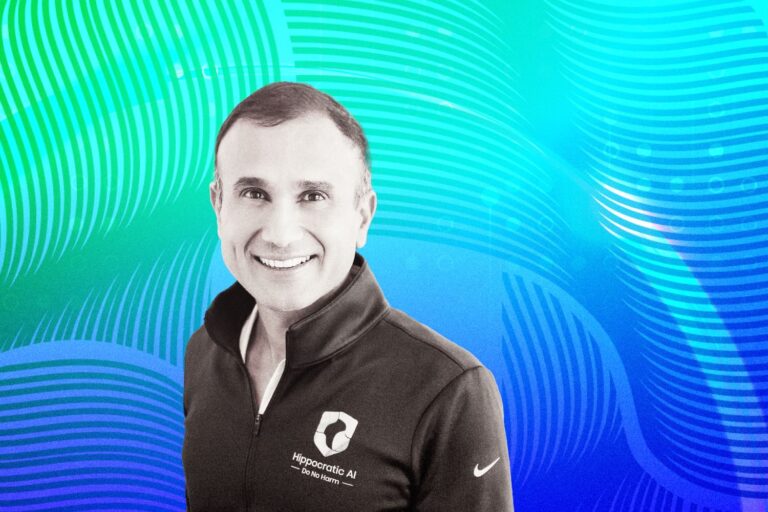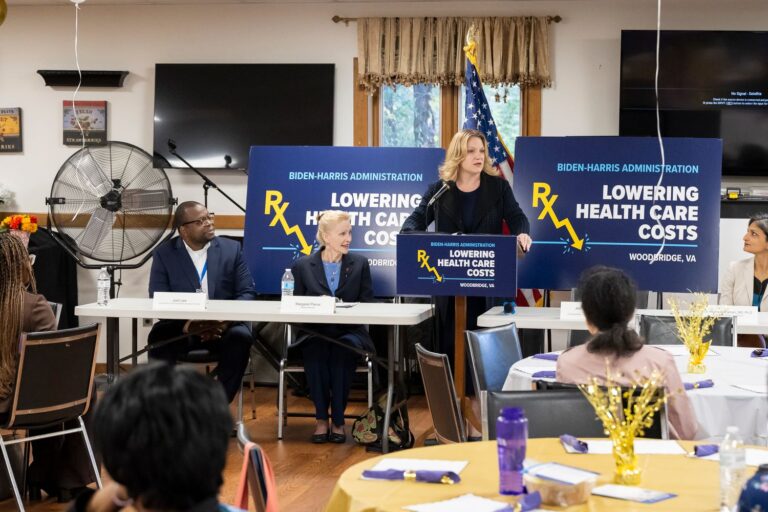Top 10 Influential Clinical Executives Disrupting the Healthcare Landscape
The healthcare industry’s landscape changes every single second – not only due to the exponential growth of information technology but also the ceaseless efforts of clinical executives to accelerate miraculous transformations to the industry.
To honor these outstanding physician and nurse leaders, the trade publication Modern Healthcare released its 2019 list of the “50 Most Influential Clinical Executives” (which was previously called the “50 Most Influential Physicians Executives and Leaders”). “It took power to make reform happen; now, it will take influential leaders to make reform work”. Let’s go through the top ten of this list and figure out how significantly they have “redefined” the healthcare industry!
1. Dr. Robert Grossman – CEO Of NYU Langone Health

Since 2007, Dr. Robert I. Grossman has been the chief executive officer of NYU Langone Health and dean of NYU School of Medicine, which was renamed in his honor in 2019 as NYU Grossman School of Medicine.
Grossman made headlines last August when leading the historic and unprecedented initiative of providing tuition-free medical education for all current and future students in its MD degree program. Grossman and other school leaders called it a “moral imperative” considering the impact medical school debt has on physician stress levels, diversity in the profession and the provider shortage.
In addition to such significant initiative, he curated a new approach to medical education, called Curriculum for the 21st Century (C21), which does emphasize clinical training from the beginning of medical school and includes a revolutionary three-year MD program for select candidates.
Most recently, Dr. Grossman was the driving force behind the creation of NYU Long Island School of Medicine—a partnership between NYU and NYU Langone Health—offering full-tuition scholarships with an accelerated three-year curriculum exclusively devoted to training primary care physicians.
At the hospital level, Grossman has driven improvements that resulted in an $8 billion spike in revenue – from $2 billion in 2007 to nearly $10 billion in 2019 – and $2.9 billion rise in philanthropy. Also of note, NYU Langone is among a small cadre of hospitals to earn a five-star rating for safety, quality, and patient experience from the CMS. Its National Institutes of Health (NIH) 2018 research awards totaled $451 million—an increase of more than 250 percent compared to 2007.
2. Dr. Mark Schuster – Founding Dean & CEO Of Kaiser Permanente School of Medicine

Prior to his appointment as the founding dean and CEO of the Kaiser Permanente School of Medicine, Dr. Mark Schuster served as the William Berenberg Professor of Pediatrics at Harvard Medical School and Chief of General Pediatrics and Vice Chair for Health Policy in the Department of Medicine at Boston Children’s Hospital since 2007.
Now at the Kaiser Permanente School of Medicine, Dr. Schuster leads the development of an innovative model of medical education, informed by Kaiser Permanente’s rich clinical and population data, deep community engagement, commitment to diversity and inclusion, and personalized patient-centered care, leveraging the principles of Permanente Medicine and the unique attributes of the Kaiser Permanente system of care. Whereas this school doesn’t open until summer 2020, it’s helping to reshape the debate over medical education.
More than that, Schuster announced in February that the school would waive tuition for its first five graduating classes – such news came about a year after the NYU School of Medicine said it was going tuition-free.
Also, Dr. Schuster is at the forefront of bringing about new ideas to medical education, including a focus on social determinants of health and costs along with the clinical concepts. In fact, he has conducted extensive research on a variety of child, adolescent, and family issues over the course of his career. Some of the key issues have been family leave, quality of care, adolescent sexual health, children with HIV-infected parents, obesity prevention, bullying, and the health of sexual minority youth.
In addition to his profound research, Schuster has written two books, more than 250 journal articles as well as numerous research briefs and reports. He is an elected member of the National Academy of Medicine (formerly the Institute of Medicine) and has served as president of the Academic Pediatric Association. He is a recipient of the Richardson Award for lifetime achievement from the Society for Pediatric Research and the Barger Excellence in Mentoring Award from Harvard Medical School.
3. Dr. Barbara Mcaneny – The Immediate Past President of The American Medical Association (AMA)

Dr. Barbara McAneny, a board-certified medical oncologist and hematologist from Albuquerque, became the 173rd president of the American Medical Association in June 2018. During her term as the president of the nation’s largest physicians’ group, Dr. McAneny has accomplished a great deal. She was a vocal opponent of the mega-merger between CVS Health and insurer Aetna. Plus, she testified against the deal during a hearing before the California Department of Insurance last year.
When it comes to her medical profession course, Dr. McAneny is a fellow and former member of the board of directors of the American Society of Clinical Oncology (ASCO), a master of the American College of Physicians, and a past president of the New Mexico Medical Society (NMMS), the Greater Albuquerque Medical Association and the New Mexico chapter of the American College of Physicians. Additionally, she works as a member of the Community Oncology Alliance Board of Trustees and on the board of directors of the Cancer Center Business Summit.
It’s also noteworthy that McAneny is one of the founders and current chair of the board of the National Cancer Care Alliance – a group of independent practices collaborating to use innovation to deliver high-quality, high-value cancer care and to develop new alternative payment models based on sound data-driven principles. Performing her role as the co-founder, McAneny has actively advocated for new payment models for cancer care as well as continuously pushed for policymakers to tackle high drug prices, consisting of recently finalized regulations that do require drug-makers to include in-depth pricing information in television commercials.
“We work in a system that too often benefits hospitals, health plans, pharma, and device companies, at the expense of physicians and patients. Physicians are frustrated when their concerns go unanswered. Physicians who actually treat patients should design the systems of health care.”
Amongst several other volunteer activities, Dr. McAneny has served on the governor of New Mexico’s Task Force on Prenatal Care, the board of Planned Parenthood of New Mexico, and as chair of the joint task force of the NMMS and the New Mexico Bar Association on domestic violence. A recipient of a New Mexico Woman on the Move Award in 2005 and Woman of Influence Award in 2009, Dr. McAneny has been voted several times by her peers as Albuquerque The Magazine’s “Top Doc” in her specialty.
4. Dr. Stephen Klasko – CEO Of Jefferson Health & President of Thomas Jefferson University

Dr. Stephen Klasko is a transformative leader and advocate for a revolution in higher education and health care – actually, Klasko is passionate about disrupting healthcare from within!
As CEO of Philadelphia-based Jefferson Health and also President of Thomas Jefferson University, he has steered one of the nation’s fastest-growing academic institutions based on his vision of re-imagining higher education and health care. To be more specific, he has grown Jefferson Health from three hospitals in 2013 to amazingly 14 hospitals with approximately $5.1 billion in revenue and up to 8.4K students
Plus, Dr. Klasko has overseen unique partnerships, including incorporating Philadelphia University – a design school- into Thomas Jefferson University. Such merger has formed a pre-eminent professional university that includes top-10 programs in fashion, design and occupational therapy, coupled with the distinctive Nexus Learning approach to teaching and learning (active, collaborative, real-world learning infused with the liberal arts) and the first design-thinking curriculum in a medical school, as well as the nation’s leading research on the role of empathy.
What’s more, Dr. Klasko is leading tremendous efforts to address social determinants of health. To take an example, Jefferson Health has designed a free women’s clinic specifically for displaced immigrants, a care group for trauma victims and health disparity research programs. Over the next few years, Klasko hopes to push the envelope further on telehealth and other services to reach patients where they most want to get care.
5. Dr. Marc Harrison – President and CEO of Intermountain Healthcare

Dr. Marc Harrison is a pediatric critical care physician with a proven track record as amongst the top operation executives on a global scale. Ranked in Fortune Magazine’s “Top 50 World’s Greatest Leaders” in 2019, he is a national and international thought leader on transformation and innovation.
As the president and CEO of Intermountain Healthcare, Dr. Harrison is responsible for the creation and execution of Intermountain’s strategy to transform healthcare through best clinical and operational practices designed to advance its mission. Plus, he does embrace strategic partnerships and novel collaborations to solve systemic problems and improve lives. Intermountain’s partnerships, pioneering initiatives, and commitment to service are transforming healthcare and bearing fruit for patients and communities.
To be more specific, under Harrison’s leadership, Intermountain has taken a bold stand in the fight against opioid addiction. Amazingly, the healthcare system saw a 30% drop in opioid prescriptions for acute pain in 2018 – that amounted to 3.8 million fewer pills. Furthermore, Intermountain has reduced hospital-acquired infections up to staggeringly 43%.
Besides, to help patients by addressing the often-unwarranted shortages and high costs of lifesaving generic medications, Intermountain Healthcare initiated a collaboration of other leading health systems to form a new, not-for-profit generic drug company called Civica Rx, which launches products to market in 2019.
“With all health systems facing chronic shortages of vital life-saving drugs, and often capricious increases in the cost of these medications, we saw that action was needed to remedy the situation.”
6. Dr. Nancy Howell Agee – President and CEO of Carilion Clinic

Nancy Howell Agee is the President and CEO of Carilion Clinic, a nearly $2 billion not-for-profit, integrated health system headquartered in Roanoke, Virginia; serving over 1 million people in Virginia and West Virginia.
Prior to her appointment in 2011, Dr. Agee served as the Executive Vice President and Chief Operating Officer. During her tenure as COO, she co-led Carilion’s transformation from a collection of hospitals to a fully integrated, patient centered, physician led organization. Such reorganization resulted in a public/private partnership with Virginia Tech to create an allopathic medical school and a research institute.
Well recognized nationally as the top thought leader in healthcare, Dr. Agee is currently chairing the American Hospital Association (AHA), a membership organization representing the nation’s 5,000 hospitals and health care systems. Later in 2019, she oversaw the launch of a new innovation center at the AHA, which – Agee firmly believed – will help spread best practices as hospitals try to shift to a value-based mentality.
7. Dr. Patrick Conway – President and CEO of Blue Cross and Blue Shield of North Carolina (Blue Cross NC)

Dr. Patrick Conway joined Blue Cross NC as President and CEO-elect on October 1, 2019. After just two years as head of the large Blues plan, Conway has significantly propelled the organization toward a more value-based payment mindset. In fact, within the next three to five years, the plan hopes that all of its 4 million members will be attributed to a provider that’s accountable for cost and quality, rather than fee for service. More than that, the Blues plan lowered rates for Affordable Care Act plans by an average of 4.1% last year as well as lowered Medicare Advantage premiums by 30%.
“Dr. Conway is a national and international leader in health system transformation, quality, and innovation,” said Blue Cross NC Board of Trustees Chair Frank Holding, Jr. “His unique experiences as a health care provider and as a leader of the world’s largest health care payor will help Blue Cross NC fulfill its mission to improve the health and well-being of our customers and communities.”
“Blue Cross NC’s role in transforming the health care system in North Carolina is a model that other plans aspire to and that I want to work with the Blue Cross NC team to further improve,” shared Dr. Conway.
Besides working at Blue Cross NC, Dr. Conway also serves as the most senior, non-political executive at CMS. Having working in both Republican and Democratic administrations, he is respected in a bipartisan manner. Actually, he is amongst the major driving forces behind the national movement to value based care, with health care payments tied to quality and innovation.
As a respected leader, innovator and clinician, he was elected to the National Academy of Medicine Institute of Medicine (IOM) in 2014. In fact, election to the IOM is considered one of the highest honors in the fields of health and medicine, recognizing individuals who have demonstrated outstanding professional achievement.
8. Dr. Mitchell Katz – President and CEO of NYC Health & Hospitals

Appointed in January 2018, Dr. Mitchell Katz is the President and Chief Executive Officer of NYC Health & Hospitals, the largest municipal health system in the United States, with 11 acute care hospitals, 5 skilled nursing facilities, dozens of community health centers, a home care agency and an insurance plan, MetroPlus Health. Since that time, he has focused on facilitating the transformation of the public health care system with numerous new initiatives to expand access to primary care services, reduce administrative costs, invest in more front-line clinical staff as well as build financial stability.
Recently, Dr. Katz told a city council committee that the health system is on track to achieve up to $757 million from revenue-generating initiatives as well as $430 million from expense-reducing initiatives. More than that, the system is expected to end the year with a cash balance of approximately $781 million, with positive cash balances also expected through the length of its five-year transformation plan.
Plus, Katz has been one of the nation’s most ardent opponents of federal plans to cut disproportionate-share hospital payments.
During the time when Dr. Katz worked as the Director of the Los Angeles County Department of Health Services (DHS), the second largest public safety net system in the United States, he eliminated the deficit of DHS through increased revenues and decreased administrative expenses as well as adopted the new ACA funding to pay for an integrated electronic health system. In fact, he moved over 4000 medically complex patients from hospitals and emergency departments into independent housing, thereby eliminating unnecessary expensive hospital care and giving the patients the dignity of their own home.
9. Dr. Tomislav Mihaljevic – President and CEO of Cleveland Clinic

The famed Cleveland Clinic has selected Dr. Tomislav Mihaljevic as the hospital system’s next CEO and president in January 2018. Prior to that, Dr. Mihaljevic served as CEO of Cleveland Clinic Abu Dhabi, overseeing the hospital’s strategy and operations as the first US multispecialty hospital to be replicated outside of North America, including directly managing the hospital’s Patient Experience and Strategy & Business Development programs.
“Dr. Mihaljevic brings a depth of experience, first as an innovative, world-class surgeon and more recently as a hospital executive focused on healthcare quality and safety, patient experience and business strategy,” said Robert E. Rich Jr., chair of Cleveland Clinic’s Board of Directors. “By nearly every measure – quality, accessibility, finances, innovation, reputation – Cleveland Clinic has made unprecedented strides since Dr. Cosgrove became CEO and president in 2004. Following in his footsteps would be challenging for anybody, but Dr. Mihaljevic has the background, skills and vision to move Cleveland Clinic forward to even greater heights.”
Dr. Mihaljevic has continued to focus on the clinic’s growth both in the U.S. and abroad. Actually, the healthcare system is slated to open a 200-room hospital in London in 2021. “Though healthcare is in the midst of a major transformation, Cleveland Clinic is very well positioned for the future,” Dr. Mihaljevic said.
“Our ongoing success will hinge on our ability to maintain high-quality outcomes, while reducing healthcare costs, encouraging innovation, and improving access and affordability for patients.”
In addition to the clinic’s growth, Mihaljevic has also placed great emphasise on improving life for clinical staff and creating a new office of caregiver experience to address staff burnout.
10. Dr. Rod Hochman – President and CEO of Providence St. Joseph Health

Dr. Rod Hochman is the president and CEO of Providence St. Joseph Health, a Catholic not-for-profit health system- the third largest health system in the U.S. – which comprised of more than 119,000 caregivers, 51 hospitals, 829 clinics, hundreds of programs and services, a supportive housing ministry and an education ministry.
Under Rod’s leadership, Providence St. Joseph Health is transforming health care for the future through digital innovation, population health, mental health, genomics, whole person care and outreach to the poor and vulnerable. Additionally, Providence St. Joseph Health has been at the forefront of addressing key social issues impacting the industry, including protection for protection of people under the Deferred Action for Childhood Arrivals program; in fact, the health system has 147 so-called Dreamers on staff. Following Hochman’s lead, the health system also created a grassroots effort to quickly engage staff on a host of policy issues, ranging from preserving Medicaid coverage to gun control.
It’s also noteworthy that Dr. Rod Hochman will be the 2021 chair of the AHA, becoming the top-elected official of the national organization that represents America’s hospitals and health systems and works to advance health in America.
“It is a real honor when you’re selected by your peers in times that are very trying for health care,” Hochman said in a phone interview Thursday from the AHA Leadership Summit in San Diego.
“The AHA plays a critical role in the health of the nation,” he stated. “I look forward to continuing to advance our vision of giving everyone the chance to live to their healthiest potential.”
The Bottom Lines
Undoubtedly,healthcare is an industry that garners universal demand across all borders, classes, and financial lines. The future of healthcare is a topic that pertains to everybody, and influencers who are helping to craft that future should be paid close attention to. These influential clinical executives do perform various roles within the present and future of healthcare, yet each of them also lends a unique voice to a “dialogue” that has great implications on the future of humanity.









